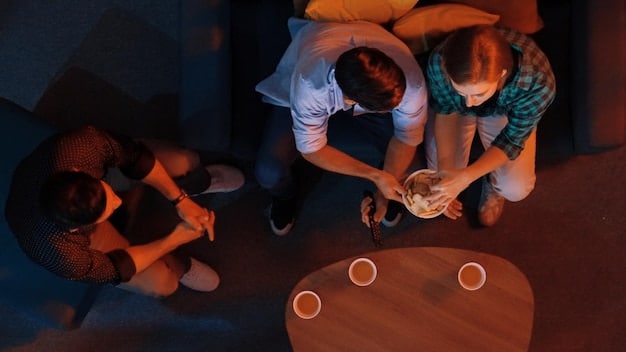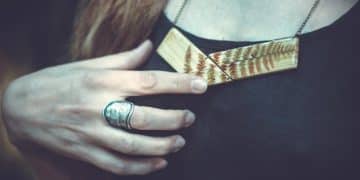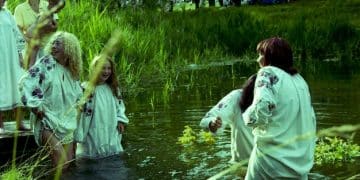The Dark Side of the Occult: Expert Insights & Warnings

The Dark Side of the Occult unveils the potential dangers of unverified spiritual practices, as experts caution against psychological manipulation, financial exploitation, and spiritual misguidance within occult circles.
The occult, often shrouded in mystery and intrigue, can hold a dark underbelly. The Dark Side of the Occult: Experts Warn of Dangers Associated with Unverified Practices, where unverified rituals and unregulated communities can lead to unexpected and harmful consequences.
Understanding the Allure and Risks of the Occult
The occult, encompassing practices such as astrology, tarot, and various forms of magic, has always held a certain fascination. This allure often stems from a desire to understand the unknown, gain personal power, or find meaning beyond the conventional. However, this quest can sometimes lead individuals down a dangerous path.
The Psychological Impact of Occult Practices
One of the most significant risks associated with unverified occult practices is their potential psychological impact. Engaging in rituals or beliefs without a solid understanding of their underlying principles can lead to confusion, anxiety, and even paranoia.
- Increased Suggestibility: Individuals deeply involved in occult practices may become more susceptible to suggestion, making them vulnerable to manipulation.
- Identity Diffusion: Experimenting with different roles and identities within occult settings can lead to a blurred sense of self and difficulty establishing a stable identity.
- Escapism and Avoidance: Using occult practices as a means of escaping from real-life problems can prevent individuals from addressing their issues in a healthy and constructive way.

Financial and Material Exploitation
Unfortunately, the occult world is not immune to those seeking to exploit vulnerable individuals for financial gain. Unscrupulous practitioners may take advantage of people’s desperation or desire for answers, leading to significant financial losses.
Fake psychic readings, overpriced ritual items, and exorbitant fees for supposed magical services are just some of the ways people can be exploited within the occult community. It is important to approach such offers with skepticism and exercise caution when dealing with individuals offering supernatural solutions to life’s problems.
In conclusion, the allure of the occult can be strong, but it’s essential to be aware of the psychological and financial risks involved. Approach with caution and seek guidance from reputable sources to minimize the potential for harm.
Spiritual Misguidance and False Teachings
The pursuit of spiritual knowledge is a noble endeavor, but it becomes perilous when individuals encounter false teachings and misleading guidance within the occult. Without proper discernment, one risks adopting harmful beliefs that can distort their understanding of reality.
False teachings in the occult often prey on individuals’ desire for quick solutions, offering shortcuts to spiritual enlightenment or promises of supernatural powers. These teachings may lack a solid foundation in established spiritual traditions and can be based on the personal interpretations of self-proclaimed gurus.
The Dangers of Individual Interpretation
While personal interpretation has its place in spiritual exploration, relying solely on individual understanding without consulting reputable sources can lead to misinterpretations and distortions of occult practices.
- Lack of Historical Context: Without understanding the historical context of occult practices, individuals may misinterpret their original meanings and purposes.
- Personal Biases: Personal biases and preconceived notions can influence how individuals interpret occult symbolism and teachings, leading to skewed understandings.
- Confirmation Bias: Individuals may selectively seek out information that confirms their existing beliefs, reinforcing false teachings and limiting their exposure to alternative perspectives.

Spiritual misguidance can have profound consequences, leading individuals down paths of deception and ultimately hindering their spiritual growth. It’s crucial to cultivate critical thinking skills, seek out diverse perspectives, and ground one’s understanding of the occult in reputable sources.
In conclusion, spiritual misguidance is a serious concern within the occult, and it’s vital to approach such teachings with discernment and critical thinking. Seek out diverse perspectives and ground your understanding in reputable sources to avoid being led astray.
Identifying Unverified and Potentially Harmful Practices
Navigating the occult requires a discerning eye to differentiate between genuine spiritual exploration and potentially harmful practices. Unverified practices often lack a clear lineage, established ethical guidelines, and a focus on personal growth and well-being.
Practices that promise instant results, supernatural powers, or the ability to manipulate others should be approached with caution. These promises often appeal to individuals’ egos and desires for control, potentially leading them down a path of self-deception and unethical behavior.
Characteristics of Unverified Practices
Several characteristics can help identify unverified and potentially harmful occult practices. Recognizing these characteristics can empower individuals to make informed decisions and avoid potentially damaging experiences.
- Lack of Lineage or Tradition: Practices that lack a clear lineage or connection to established occult traditions may be based on personal interpretations or fabrication.
- Emphasis on Secrecy and Exclusivity: Practices that rely heavily on secrecy and exclusivity may be attempting to control information and limit critical inquiry.
- Promise of Instant Results or Power: Practices that promise instant results or supernatural powers are often unrealistic and may be designed to manipulate individuals’ desires.
Furthermore, practices that prioritize manipulating others, seeking revenge, or inflicting harm should be avoided at all costs. Ethical occult practices focus on personal growth, self-understanding, and service to others. Recognizing the characteristics of unverified practices is essential for navigating the occult with safety and discernment. Prioritize ethical practices and seek guidance from reputable sources.
In conclusion, discerning between genuine spiritual exploration and potentially harmful practices is paramount in the occult world. Identifying the characteristics of unverified practices allows individuals to make informed choices and prioritize ethical and constructive approaches.
The Importance of Ethical Considerations
Ethics play a crucial role in any spiritual practice, and the occult is no exception. Engaging in occult practices without a strong ethical framework can lead to unintended consequences and harm to oneself and others.
Ethical considerations in the occult encompass principles such as respecting free will, avoiding manipulation, and acting with integrity. Intentions matter greatly in occult practices, and those motivated by egoism, greed, or a desire to control others are likely to encounter negative repercussions.
- Respect for Free Will: Ethical occult practitioners respect the free will of others and avoid attempting to control or manipulate them through magical means.
- Honesty and Transparency: Ethical occult practices are characterized by honesty and transparency, with practitioners clearly disclosing their intentions and methods.
- Responsibility for Actions: Ethical occult practitioners take responsibility for their actions and the potential consequences of their practices.
- Non-Maleficence: The principle of non-maleficence dictates that ethical occult practitioners should strive to avoid causing harm to others through their practices.
Cultivating an ethical framework for occult practice promotes personal growth, spiritual development, and the well-being of the individual and the community. It also serves as a safeguard against the potential pitfalls of misusing occult knowledge and power.
In conclusion, ethics are indispensable in occult practices, guiding individuals toward responsible and constructive engagement. By respecting free will, acting with integrity, and avoiding harm, practitioners can ensure that their pursuits are aligned with both personal and collective well-being.
Seeking Guidance from Reputable Sources and Mentors
Embarking on a journey into the occult is best done with the guidance of reputable sources and mentors. Experienced individuals can offer valuable insights, provide constructive feedback, and help navigate the complexities of occult practices.
Reputable sources of information include established occult traditions, respected authors, and experienced practitioners who adhere to ethical guidelines. These sources can provide a solid foundation of knowledge and understanding, reducing the risk of misinformation and potentially harmful practices.
Mentors can offer personalized guidance and support, helping individuals identify their strengths and weaknesses and develop a clear path for their occult exploration.
- Established Occult Traditions: Traditions with a long history provide a rich source of knowledge and guidance, offering clear frameworks for practice.
- Experienced Practitioners: Mentors who have spent years studying and practicing provide personalized guidance, helping individuals navigate the occult safely and effectively.
- Reputable Authors: Authors with a deep understanding of the occult can offer valuable insights and perspectives, and provide clarity on complex topics.
Seeking out reputable sources and mentors will ensure that the pursuit of knowledge is founded on solid ground, and that practitioners proceed with caution.
In summary, mentors provide personalized guidance, and this will result in a safe and effective journey into the occult for any practitioner.
Protecting Yourself: Practical Tips for Safe Occult Exploration
Engaging with the occult can be a deeply enriching experience, but it’s essential to prioritize personal safety and well-being. By implementing practical strategies and cultivating a mindful approach, individuals can navigate the occult world with greater confidence and security.
Setting clear boundaries, practicing proper grounding techniques, and maintaining a healthy skepticism are key components of safe occult exploration. It’s also essential to trust your intuition and heed any warning signs that may arise during your practices.
Establishing Clear Boundaries
Setting clear boundaries is essential for maintaining personal integrity and preventing unwanted influences during occult practices.
- Identify Your Limits: Understanding your comfort levels and boundaries helps prevent overextension and potential psychological strain.
- Communicate Your Needs: Clearly communicate your needs to others involved in your practices, ensuring that your boundaries are respected.
- Enforce Consequences: Be prepared to enforce consequences if your boundaries are violated, reinforcing your commitment to personal safety and well-being.
The occult can be approached with mindfulness to keep oneself safe, and ensure that any exploration is a valuable experience.
In conclusion, protecting yourself in the occult is about being proactive and aware. Prioritizing boundaries, grounding, and skepticism ensures a safer path forward.
| Key Point | Brief Description |
|---|---|
| ⚠️ Psychological Impact | Unverified practices can lead to anxiety and paranoia. |
| 💰 Financial Exploitation | Be wary of overpriced services and fake readings. |
| 📚 Spiritual Misguidance | Seek knowledge from reputable and ethical sources. |
| 🛡️ Personal Safety | Set boundaries and trust your intuition for safe exploration. |
FAQ
▼
The occult refers to knowledge or practices that are hidden or secret, often involving supernatural or paranormal phenomena. This includes areas like astrology, tarot, and magic.
▼
Discernment ensures that one can differentiate between genuine spiritual insights and potentially harmful or misleading information. It helps in avoiding exploitation and misguidance.
▼
Be skeptical of offers that promise quick solutions or require large sums of money. Always seek second opinions and do thorough research before investing time or money.
▼
Red flags include practices that lack a clear lineage, emphasize secrecy, promise instant results, or encourage manipulation. Trust your instincts and avoid such practices.
▼
Look to established traditions, respected authors, and experienced practitioners known for their ethical approach. Libraries and academic resources can also provide valuable insights.
Conclusion
Exploring the occult can be fascinating, but awareness of potential dangers is key. By understanding psychological risks, avoiding exploitation, and seeking reputable guidance, individuals can engage safely and responsibly.





